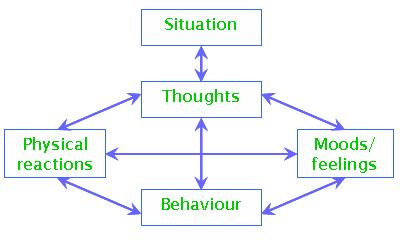Selective serotonin reuptake inhibitors (SSRIs) are a type of antidepressant medicine. These can help patients feel less sad and worried. They appear to be helpful, and for some people they are very effective. Chemicals in your brain affect the way you feel. For example, when you have depression you may not have enough of a chemical called serotonin. SSRIs raise the level of serotonin in your brain, causing you less depression.
2. CBT Therapy
In cognitive therapy, the therapist helps the patient understand and change how they think about their trauma and its aftermath. The patient will also learn ways to cope with feelings such as anger, guilt, and fear. The patient might blame themselves for things they couldn't have changed. For example, a soldier may feel guilty about decisions he or she had to make during war. This tupe of thearpy helps them understand that the traumatic event you lived through was not your fault.
By pairing this together, the treatment effectiveness can be very much boosted. Only because medication gets you at the correct mood where you need to be to be able to really apply yourself in CBT, and for the patient to really be able to forgive themselves for whatever trauma they have lived through or caused.

http://www.ptsd.va.gov/public/pages/treatment-ptsd.asp

















